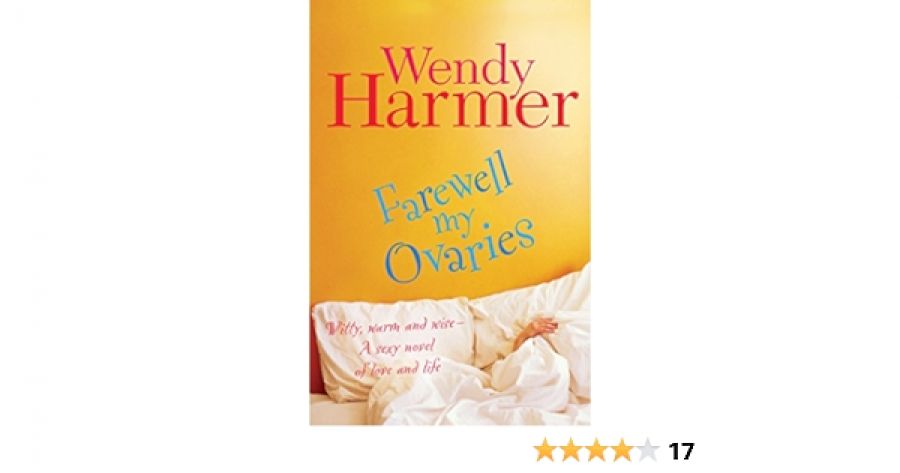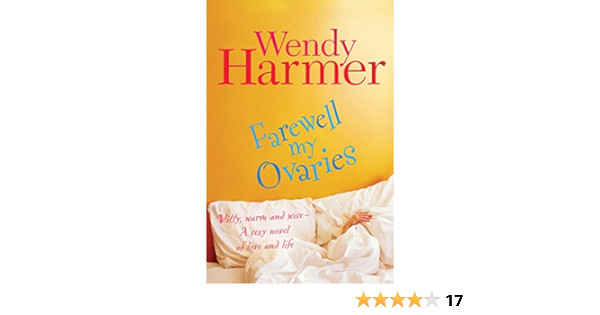
- Free Article: No
- Contents Category: Fiction
- Review Article: Yes
- Article Title: Hen Lit
- Online Only: No
- Custom Highlight Text:
Where are the great menopause novels? In The Change (1991), Germaine Greer described menopause as the ‘undescribed experience’, but then noted that it had in fact been described extensively, mostly ‘by men for the eyes of other men’. Wendy Harmer’s Farewell My Ovaries is written by a woman for the eyes of other women, but it does not really aspire to greatness. It is unashamedly ‘chick lit’ – or ‘chick-making-the-uneasy-transition-to-hen-lit’.
- Book 1 Title: Farewell My Ovaries
- Book 1 Biblio: Allen & Unwin, $29.95pb, 320pp
- Book 1 Cover Small (400 x 600):

- Book 1 Cover (800 x 1200):

The chick/hen in question, Claire Wallace, a successful singer and the mother of a young child, is rudely surprised by peri-menopause. Suddenly, she finds herself ‘a foot soldier in the great grey army of menopausal woman’, an army that has ‘chosen its own uniform of blue, brown and beige, accessorized with comfy shoes and an armful of white plastic bags’. (The plastic bag often comes up as a menopause accessory: Greer also describes the ‘little grey lady with a plastic shopping bag apologetically threading her way through the gaudy prostitutes and lounging boys on the pavement’.)
Claire rejects this vision of her future: ‘Fuck all of you! With your bloody padded coat hangers, lavender sachets, rhyming greeting cards and stinking chocolate rumballs!’ But what other options are available? There is glamour as well as pathos in the male mid-life cliché: the red sports car, the racy new squeeze. What is sexy about menopause? By definition, nothing. Claire is not yet ready to become a crone. Nor is she interested in becoming ‘a glove-wearing, turtle-necked Diane Keaton’. Harmer doesn’t really provide answers; her comedy, at its best, is about questions.
The book begins, unpromisingly, with slapstick, but Harmer soon moves to more comfortable material – the shared currency of life’s detail. She lists the contents of a handbag, or the adolescent possessions of the child of the 1970s: ‘a pet rock, a boob tube, a Mao Tse-tung tea towel, a pair of purple jumbo cords or a transistor in a Coke can.’ This is a ‘have-you-ever-noticed?’ Seinfeld routine, and its comedy lies in the collision of two recognitions – familiarity and arbitrariness – with the implied first-principles question: ‘Why?’
Central to the book is a female friendship, which is cloyingly full of collapsing giggles and kisses, but which also allows a weary veterans’ humour: ‘my idea of erotic is being alone, just me and my Maeve Binchy … in a bunker in Afghanistan.’ Much of the book reads like a stand-up routine: the anecdotes are drawn in hasty, lurid brushstrokes, redeemed by a punchline. The dialogue works well, and moves at a cracking pace, even if most of the characters seem to be speaking like Harmer. It is a warm, assured comic voice, less strained than Kathy Lette, more laid-back than the gals on Sex and the City.
Perhaps Harmer’s stand-up comedy roots also account for the book’s weaknesses. Stand-up deals in the abbreviations of stereotype: stock images that the audience can easily assimilate to get to the punchline. Several of the central characters – especially the men – struggle to shake off their stereotypes. Connor, the heart-throb, is more of an idea than a person – but then, that’s the idea. More problematically, Charlie, the husband, is an amusing parody of oppressive SNAG-ness – ‘Mister I Hear Your Criticism and I Thank You For It’. What on earth did Claire see in him?
Even more problematic are the segues between the comedy and porno-lit. Harmer begins, literally, with a bang, but it made me whimper. I felt I had stepped into Mills & Boon. All was salvaged – just in time – by a punchline, but things were looking ominous. Indeed, there is a tonal inconsistency throughout the book, as laughter gives way to heavy breathing. Of course, in sex a misplaced laugh can be terribly deflating. There’s that scene in Milan Kundera’s Book of Laughter and Forgetting (1978) where two men are evicted from an orgy for laughing hysterically, even as ‘they knew that laughter was as sacrilegious here as it is in church when the priest is elevating the host’. The whole thing is teetering on the edge of absurdity anyway; perhaps we need to treat it like church.
The problem in Farewell My Ovaries is its lurching gear changes as it seeks three different responses: laughter, identification, arousal. For me, it succeeds on two. Susan Sontag wrote of Jean Genet that ‘the author’s excitement precludes the reader’s own’. Perhaps this is the difficulty here: Connor is too much Harmer’s own fantasy. It is only when Claire remembers an episode of lesbian sex, which disappointed her, that the writing becomes more surprising and more interesting: ‘she felt a weird compulsion to climb inside Carrie and pull the inner folds of her vagina right over her head.’
A central question in the book is, ‘what’s the best sex you’ve had?’ As a tragic bookworm, I immediately asked: ‘what’s the best sex I’ve read?’ Alas, it wasn’t this. Any male lead whose eyes are ‘a remarkable shade of blue-green’ is never going to work for me. Barbara Kingsolver (whose sex scenes were the only jarring note in Prodigal Summer, 2000) writes that ‘the language of coition has been stolen, or … divvied up like chips in a poker game among pornography, consumerism, and the medical profession’. I would add Mills & Boon, and cliché, though perhaps these are subsets of pornography. There are certain expressions that ought to be outlawed rather than reclaimed: ‘shuddering heap’, ‘a cool current rippled through her body’, ‘with one thrust he was inside her’. Perhaps there was satire here, and I missed it. I think of Harmer’s face, with its vulnerability and sweetness and the half turn of her mouth, as if everything is partly amusing, partly sour. I would have liked her first-principles comedy to continue into the bedroom.
How did her book rate? For me, it was a one-night stand: amusing, diverting, at times regrettable.


Comments powered by CComment